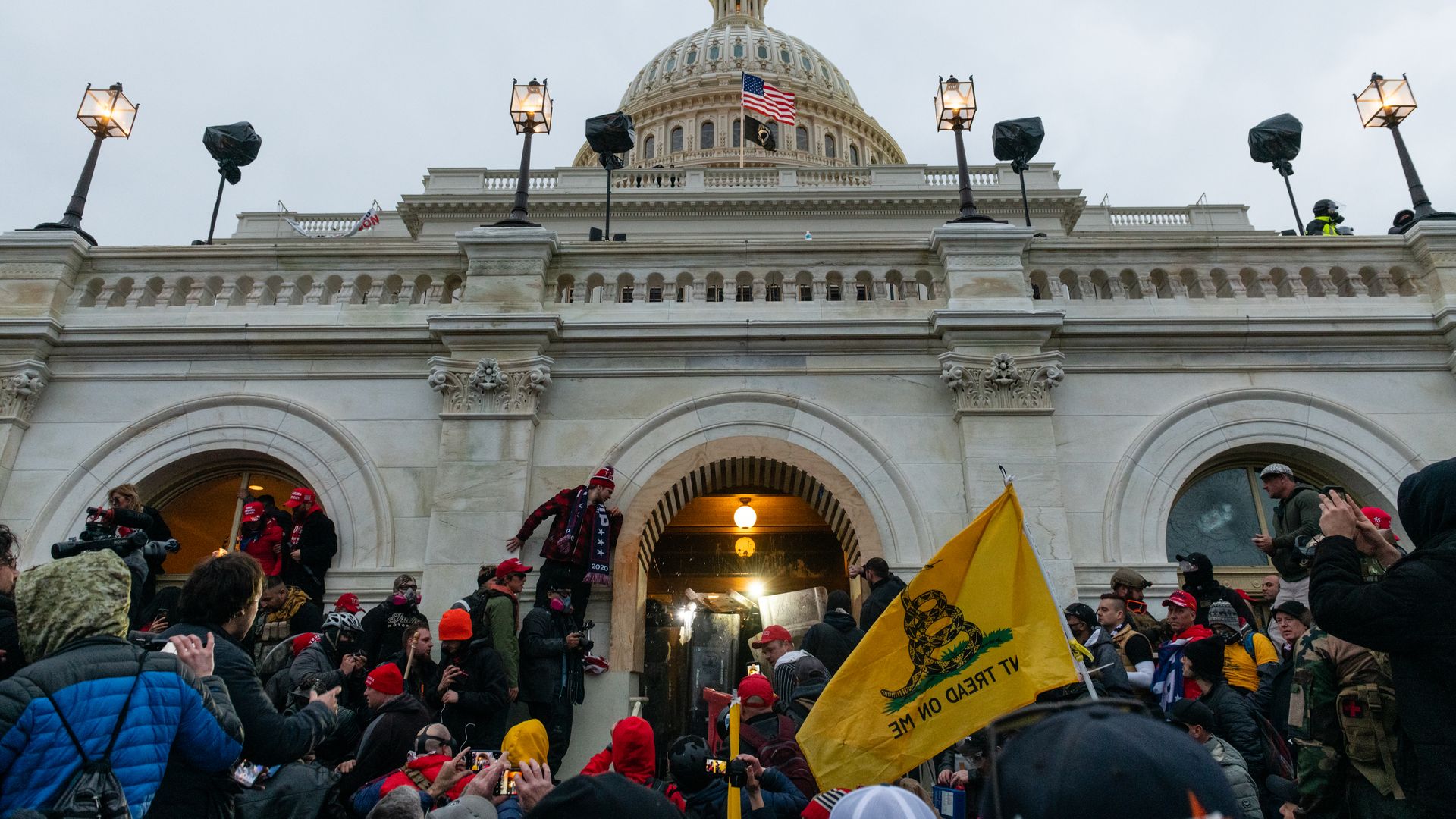Nov 19, 2021 - Politics & Policy
Judge casts doubt on obstruction charge in Capitol riot cases
Add Axios as your preferred source to
see more of our stories on Google.

Demonstrators clash with law enforcement as they attempt to breach the U.S. Capitol in Washington, D.C., on Jan. 6. Photo: Eric Lee/Bloomberg via Getty Images
